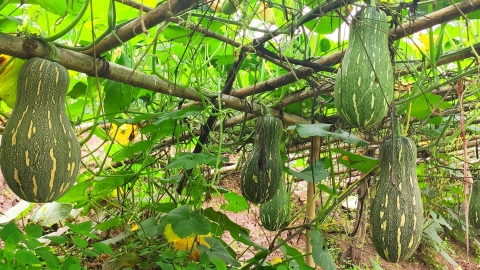Can milk and pumpkin be eaten together?
Generally speaking, milk and pumpkin can be consumed together under normal circumstances. Details are as follows:

Milk is a high-quality source of protein and calcium, and also contains vitamins such as vitamin D that aid calcium absorption, playing an important role in maintaining bone health and enhancing immunity. Pumpkin is rich in vitamin A, vitamin C, dietary fiber, minerals, etc., which help enhance resistance and promote digestion. When milk and pumpkin are consumed together, their nutritional components can complement each other. Meanwhile, the dietary fiber in pumpkin can promote the digestion and absorption of nutrients in milk.
However, for some specific individuals, such as those who are lactose intolerant or have a sensitive digestive system, consuming large amounts of milk and pumpkin together might cause gastrointestinal discomfort, such as bloating, diarrhea, and other symptoms. In addition, patients with acute gastroenteritis may experience worsened conditions and delayed recovery if they consume large amounts of both foods simultaneously. Some individuals may be allergic to either milk or pumpkin, and in such cases, consumption is not recommended to avoid allergic reactions that could harm health.
In daily diets, it is important to observe the body's reactions and avoid discomfort after consumption.





